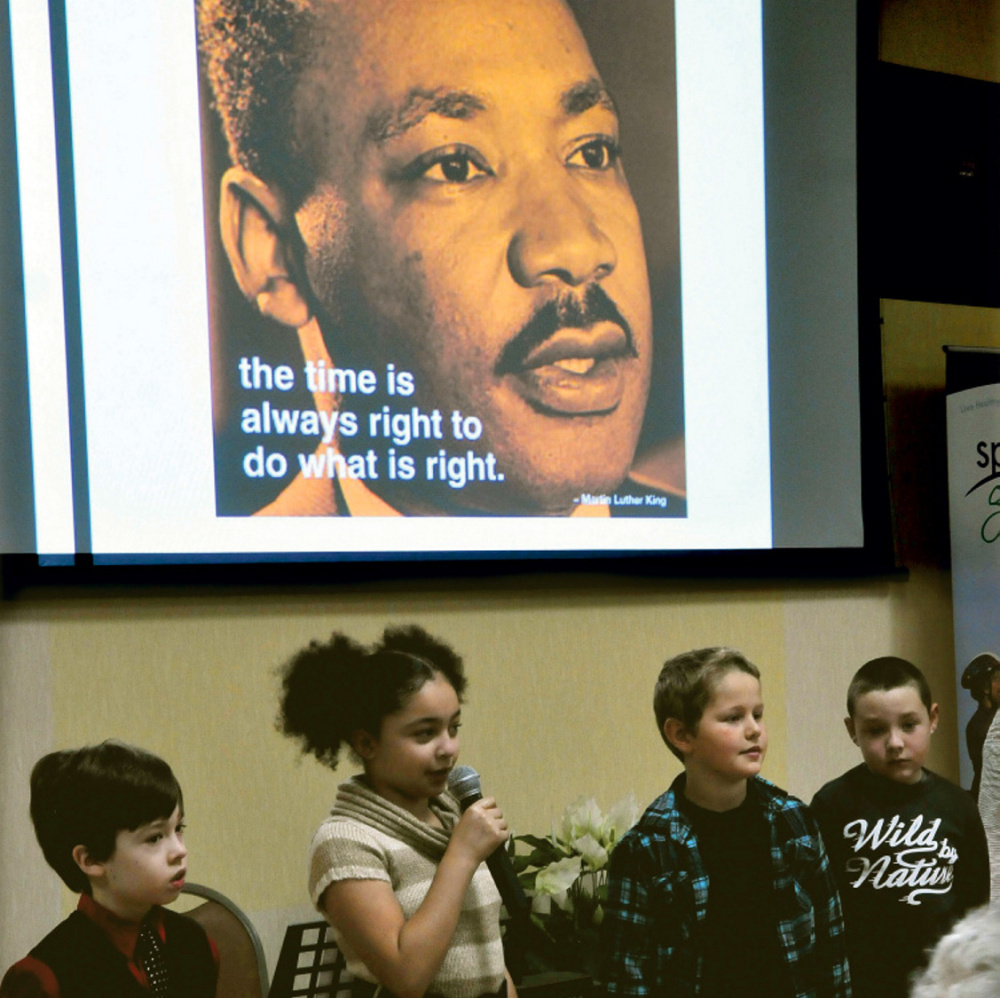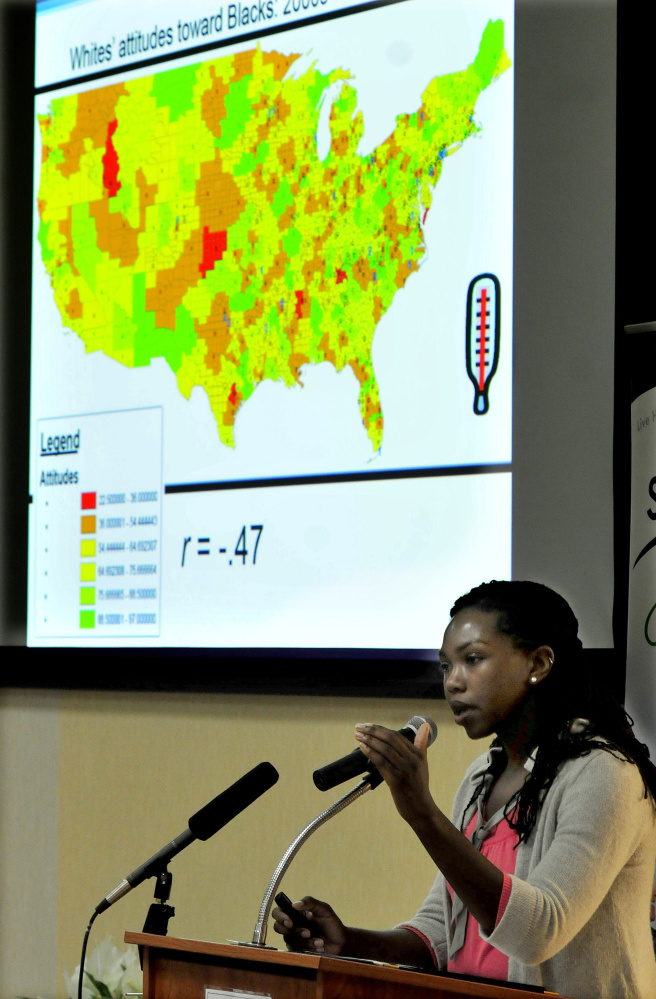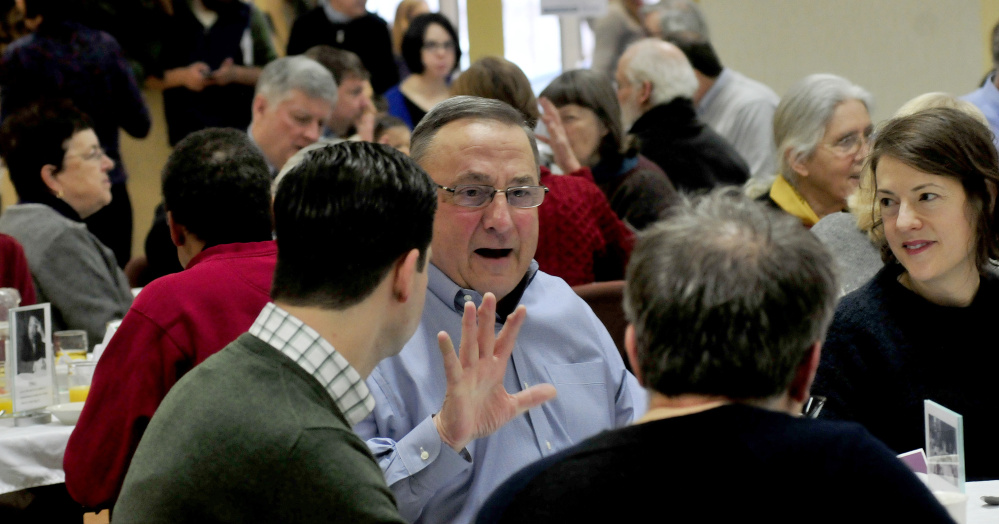WATERVILLE — The community came out to celebrate and reflect on the memory of civil rights leader Martin Luther King Jr. on Monday, with events in the city and at Colby College drawing large crowds.
About 150 people of all ages crammed into the Muskie Center early Monday morning for the 30th annual breakfast, gathering to pay tribute to slain civil rights leader Martin Luther King Jr. with prayer, speech and song. In the afternoon, a standing-room-only crowd at Colby College attended the commemorative Martin Luther King Jr. lecture “The History of White People: A Conversation about Race Relations,” delivered by Princeton University history professor Nell Irvin Painter.
The sold-out breakfast, hosted by Spectrum Generations and the Waterville Rotary Club, was attended by community leaders, including Gov. Paul LePage, a former Waterville mayor who did not speak publicly during the event. Local pastors the Revs. Effie McClain and Mark Wilson led the invocation and benediction, and the Pleasant Street Methodist Church Choir sang hymns to mark the occasion.
Guest speaker Allecia Reid, a psychology professor at Colby College, said at the Muskie Center breakfast that real progress toward equality and tolerance was fostered by one-on-one interactions with people of different racial, ethnic, or religious backgrounds. Reid, an African-American who was born in Jamaica, moved to the area in 2013 and lives in Oakland with her family.
The Waterville area has an opportunity to invite people from more diverse backgrounds and to reach out to make sure they stay and become part of the community, Reid said.
“I often hear that people said Mainers don’t like people from away,” Reid said. “If that is true, we are going to have a hard time attracting people to move here and keeping people here who might not look like a typical Mainer.”
At the afternoon lecture, held at the Osgrove Auditorium at Colby College, historian Painter discussed how ideas of race, especially the idea of being “white” in America, have changed over time.
At the birth of ideas about racial classification in the 18th century, Irish immigrants in America were considered white and could vote, but they also were designated as an inferior race, Painter said. But by World War I, Irish were considered to be part of a broader “Nordic” race, and attitudes changed significantly after World War II.
“When they heard how it sounded when it came from Germany, it kind of put a damper on it,” Painter said.
Send questions/comments to the editors.






Success. Please wait for the page to reload. If the page does not reload within 5 seconds, please refresh the page.
Enter your email and password to access comments.
Hi, to comment on stories you must . This profile is in addition to your subscription and website login.
Already have a commenting profile? .
Invalid username/password.
Please check your email to confirm and complete your registration.
Only subscribers are eligible to post comments. Please subscribe or login first for digital access. Here’s why.
Use the form below to reset your password. When you've submitted your account email, we will send an email with a reset code.